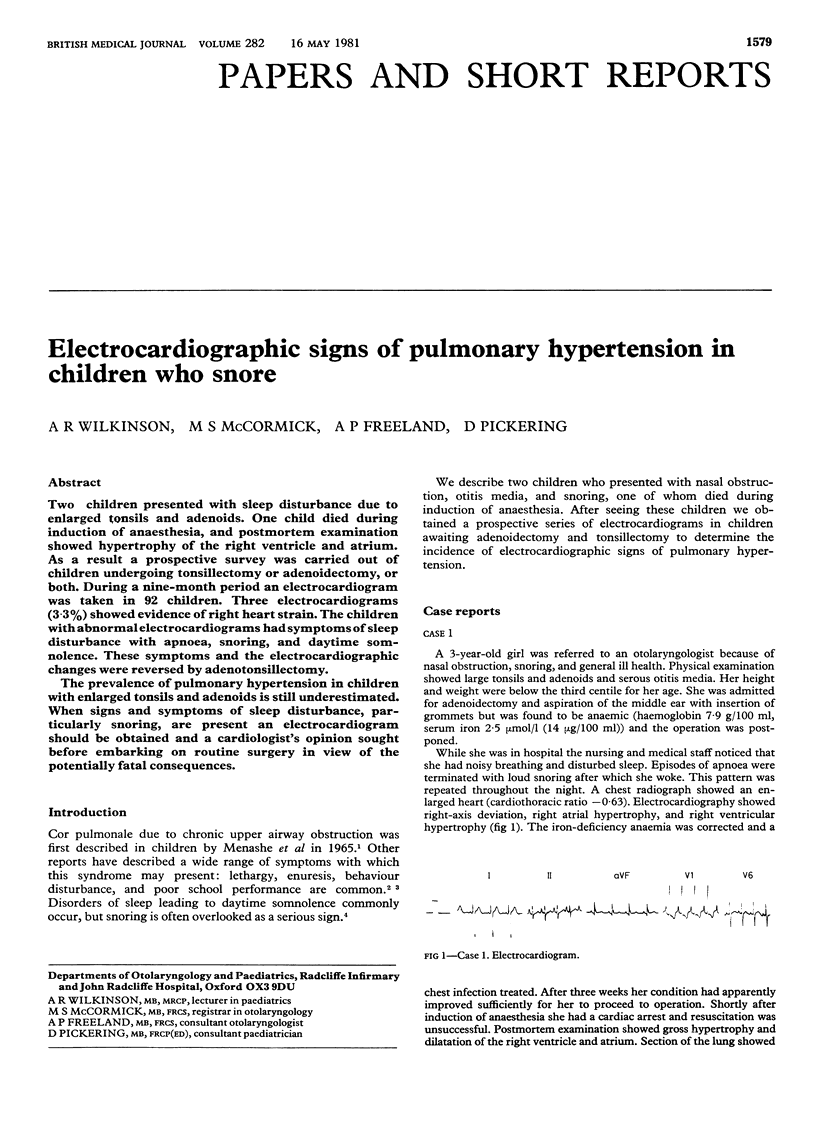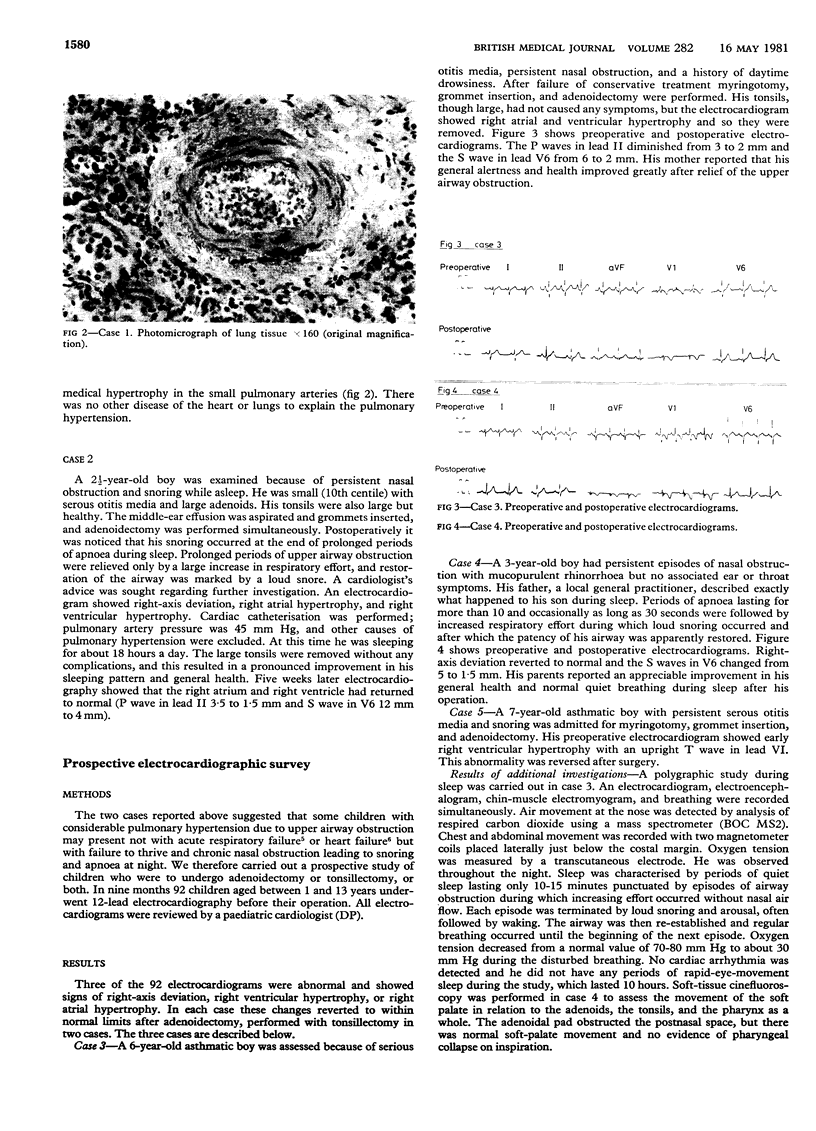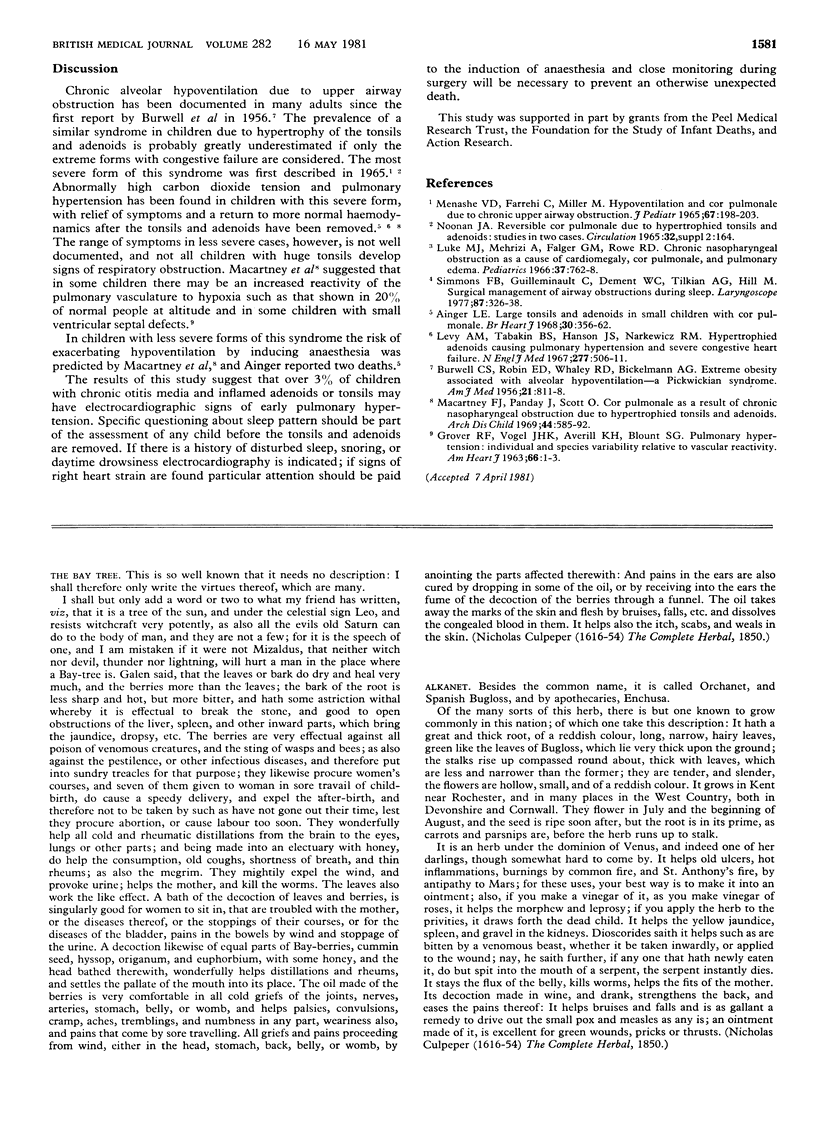Abstract
Two children presented with sleep disturbances due to enlarged tonsils and adenoids. One child died during induction of anaesthesia, and postmortem examination showed hypertrophy of the right ventricle and atrium. As a result a prospective survey was carried out of children undergoing tonsillectomy or adenoidectomy, or both. During a nine-month period an electrocardiogram was taken in 92 children. Three electrocardiograms (3.3%) showed evidence of right heart strain. The children with abnormal electrocardiograms had symptoms of sleep disturbance with apnoea, snoring, and daytime somnolence. These symptoms and the electrocardiographic changes were reserved by adenotonsillectomy. The prevalence of pulmonary hypertension in children with enlarged tonsils and adenoids is still underestimated. When signs and symptoms of sleep disturbance, particularly snoring, are present an electrocardiogram should be obtained and a cardiologist's opinion sought before embarking on routine surgery in view of the potentially fatal consequences.
Full text
PDF


Images in this article
Selected References
These references are in PubMed. This may not be the complete list of references from this article.
- Ainger L. E. Large tonsils and adenoids in small children with cor pulmonale. Br Heart J. 1968 May;30(3):356–362. doi: 10.1136/hrt.30.3.356. [DOI] [PMC free article] [PubMed] [Google Scholar]
- BICKELMANN A. G., BURWELL C. S., ROBIN E. D., WHALEY R. D. Extreme obesity associated with alveolar hypoventilation; a Pickwickian syndrome. Am J Med. 1956 Nov;21(5):811–818. doi: 10.1016/0002-9343(56)90094-8. [DOI] [PubMed] [Google Scholar]
- Levy A. M., Tabakin B. S., Hanson J. S., Narkewicz R. M. Hypertrophied adenoids causing pulmonary hypertension and severe congestive heart failure. N Engl J Med. 1967 Sep 7;277(10):506–511. doi: 10.1056/NEJM196709072771003. [DOI] [PubMed] [Google Scholar]
- Luke M. J., Mehrizi A., Folger G. M., Jr, Rowe R. D. Chronic nasopharyngeal obstruction as a cause of cardiomegaly, cor pulmonale, and pulmonary edema. Pediatrics. 1966 May;37(5):762–768. [PubMed] [Google Scholar]
- Macartney F. J., Panday J., Scott O. Cor pulmonale as a result of chronic nasopharyngeal obstruction due to hypertrophied tonsils and adenoids. Arch Dis Child. 1969 Oct;44(237):585–592. doi: 10.1136/adc.44.237.585. [DOI] [PMC free article] [PubMed] [Google Scholar]
- Simmons F. B., Guilleminault C., Dement W. C., Tilkian A. G., Hill M. Surgical management of airway obstructions during sleep. Laryngoscope. 1977 Mar;87(3):326–338. doi: 10.1288/00005537-197703000-00005. [DOI] [PubMed] [Google Scholar]



